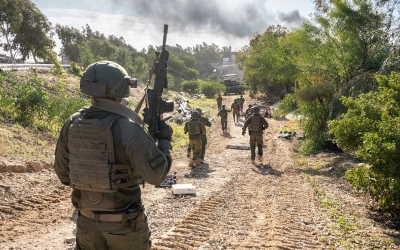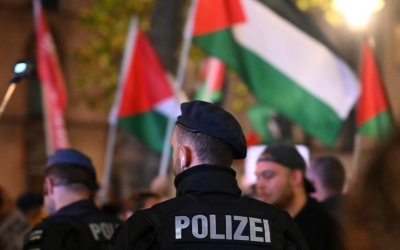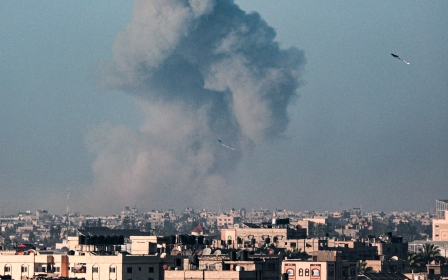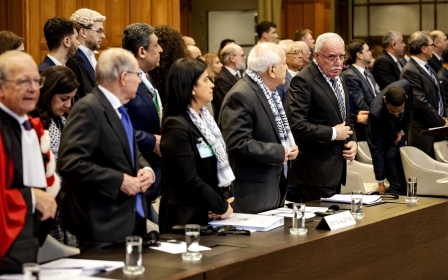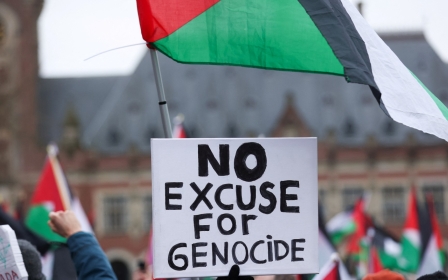Nicaragua tells ICJ Germany is 'facilitating' genocide in Gaza
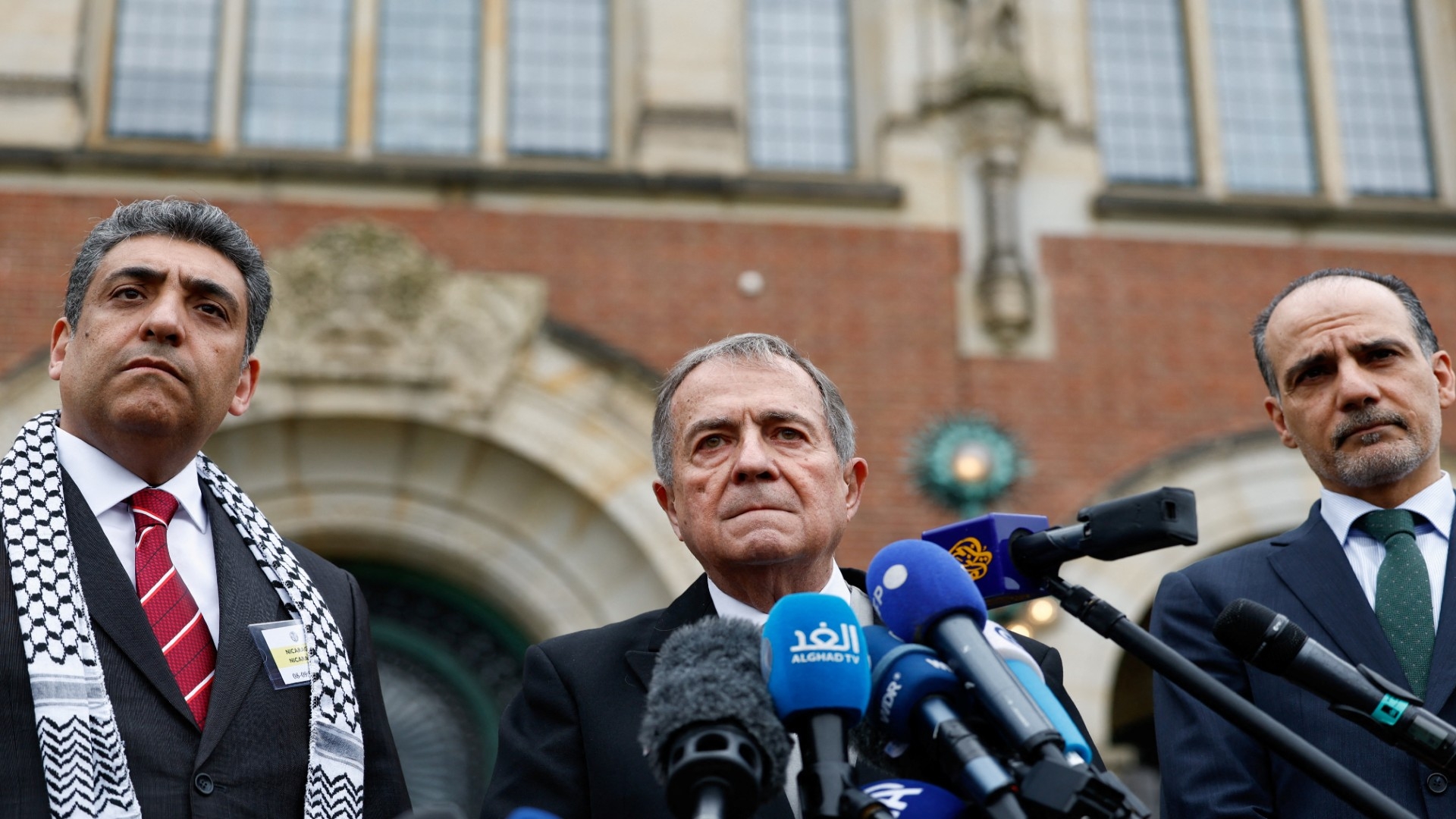
Nicaragua has brought Germany before the International Court of Justice (ICJ) for violating the Genocide Convention through its continued military and political support of Israel.
On Monday, the Nicaraguan delegation presented its case as part of a two-day hearing, accusing Germany of "facilitating the commission of genocide" and demanding the court impose emergency measures to halt German arms exports to Israel and reinstate funding for the UN Palestinian refugee agency, Unrwa.
In his opening comments to the court, Nicaraguan Ambassador to the Netherlands Carlos Jose Arguello Gomez said that, through its continued support of Israel: "Germany is failing to honour its own obligation to prevent genocide or to ensure respect of international humanitarian law."
Nicaragua demanded the court issue five provisional measures, including that Germany "immediately suspend its aid to Israel, in particular its military assistance, including military equipment" and that it "reverse its decision to suspend the funding of Unrwa".
The implementation of these measures was "increasingly more urgent and necessary" in light of the rapidly deteriorating humanitarian situation in the Strip, the delegation said.
New MEE newsletter: Jerusalem Dispatch
Sign up to get the latest insights and analysis on Israel-Palestine, alongside Turkey Unpacked and other MEE newsletters
Germany, whose lawyers will present the delegation’s defence on Tuesday, rejects the charges.
After the hearing, German legal representative Tania von Uslar-Gleichen dismissed Nicaragua's presentation as "grossly biased".
'Flashing red'
The Nicaraguan case argues that since the start of the war, Germany has been fully aware that Israel was violating international law in Gaza, and that, following the ICJ’s ruling on 26 January that found a "plausible risk" of genocide in Gaza, these violations were tantamount to genocide.
"There is no question that Germany was well aware of at least the serious risk of genocide being committed," Gomez said.
Following the ICJ’s ruling, "The alarm was sounded and indications for genocide were flashing red."
This, he said, obligated states to act to prevent genocide.
Despite this clarity, "Germany continues to this day to provide military assistance to Israel," he said.
Gomez added that while Germany had suspended its support for Unrwa "on the say so of Israel", they had repeatedly ignored warnings from "the most important world authorities that genocide and other violations of international humanitarian law were being perpetrated by Israel in Palestine."
Daniel Muller, a legal expert speaking on behalf of Nicaragua, cited statements by high ranking German officials acknowledging the "hellish" situation in Gaza, arguing that this "raises doubts about the respect of elementary rules of international law".
Raison d'etat
From the start of the war, Gemany has justified its unwavering support for Israel by invoking the country's right to self defence, with Federal Chancellor Olaf Scholz saying in parliament that, "Israel’s security is part of Germany’s raison d’état."
"Surprisingly, Germany seems not to be able to differentiate between self-defence and genocide," Gomez told the court on Monday.
As the civilian death toll in Gaza mounted, on 26 October, Scholz said that he had "no doubt" that "the Israeli army will also respect the rules that arise from international law in everything it does," a statement that directly contradicted that of the UN secretary general who had said two days earlier that "nothing can justify" the collective punishment of Palestinians.
Germany is the second largest arms exporter to Israel, approving $354m worth of weapons exports in 2023, a tenfold increase compared to the previous year.
"Germany cannot but be aware that the munitions, the military equipment, and the war weapons it is supplying" to Israel is facilitating its human rights violations in Gaza, Gomez said.
"It does not matter if an artillery shell is delivered straight from Germany to an Israeli tank shelling a hospital or university, or whether that artillery shell goes to replenish Israel’s stockpile for use at some later date," he added.
On Friday, the UN Human Rights Council called for a suspension of arms sales to Israel, marking the first time the body has taken a position since war broke out on 7 October.
Middle East Eye delivers independent and unrivalled coverage and analysis of the Middle East, North Africa and beyond. To learn more about republishing this content and the associated fees, please fill out this form. More about MEE can be found here.


